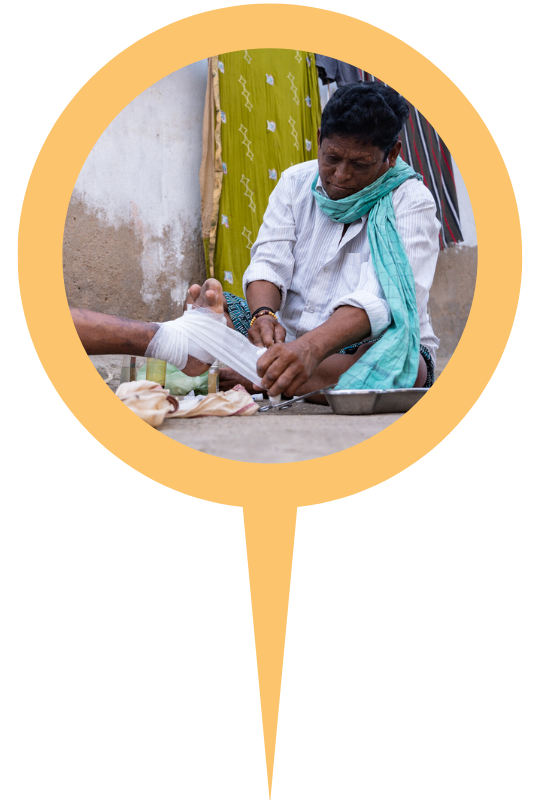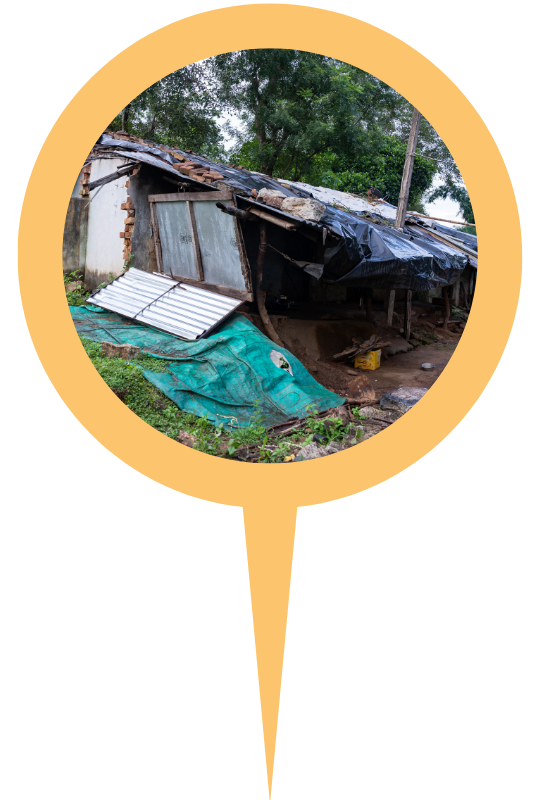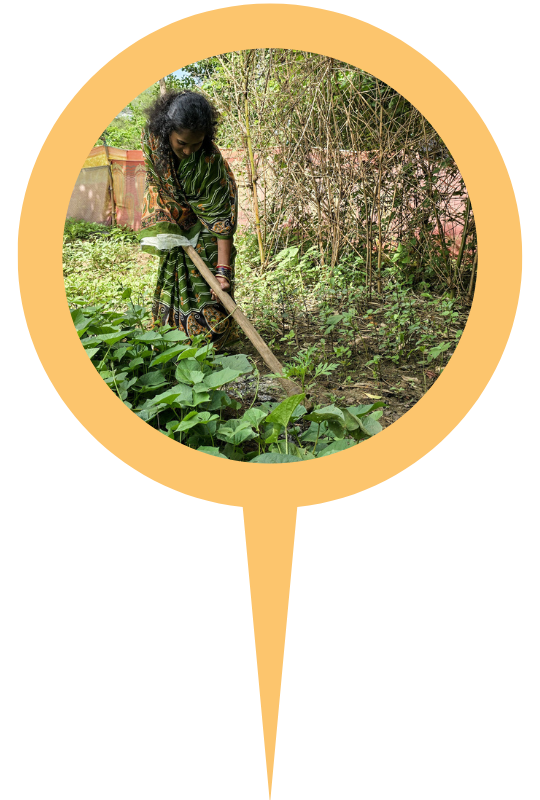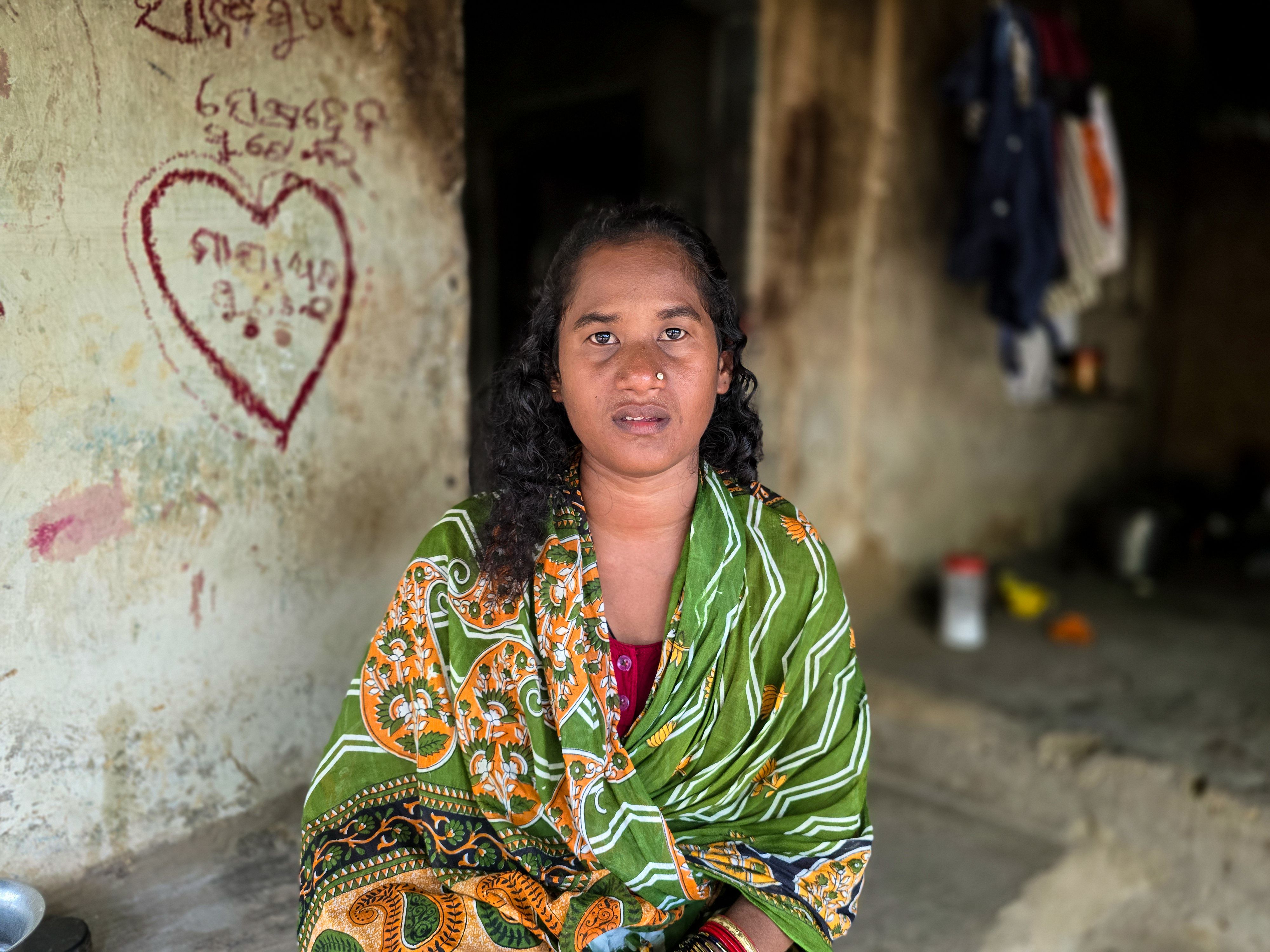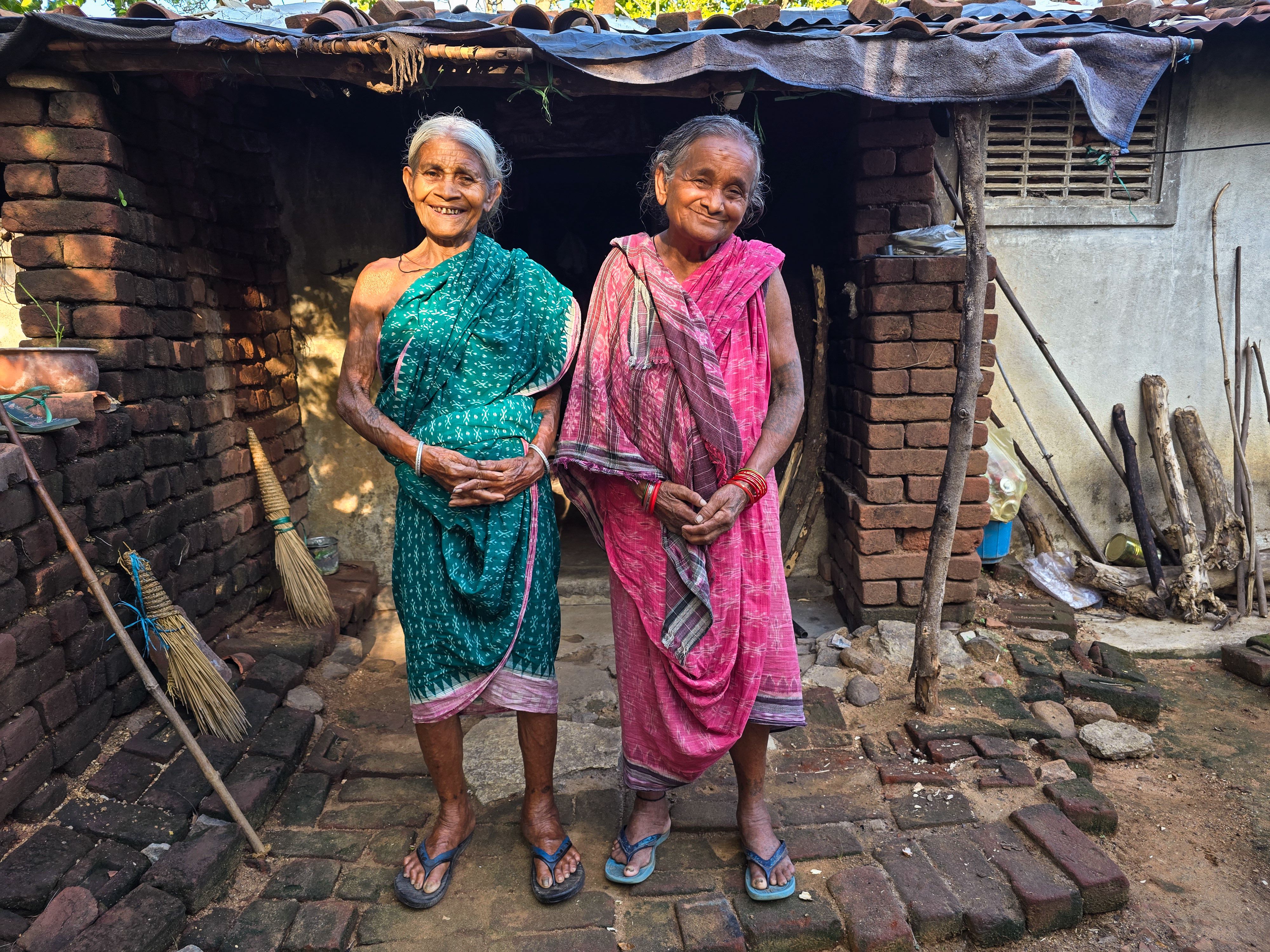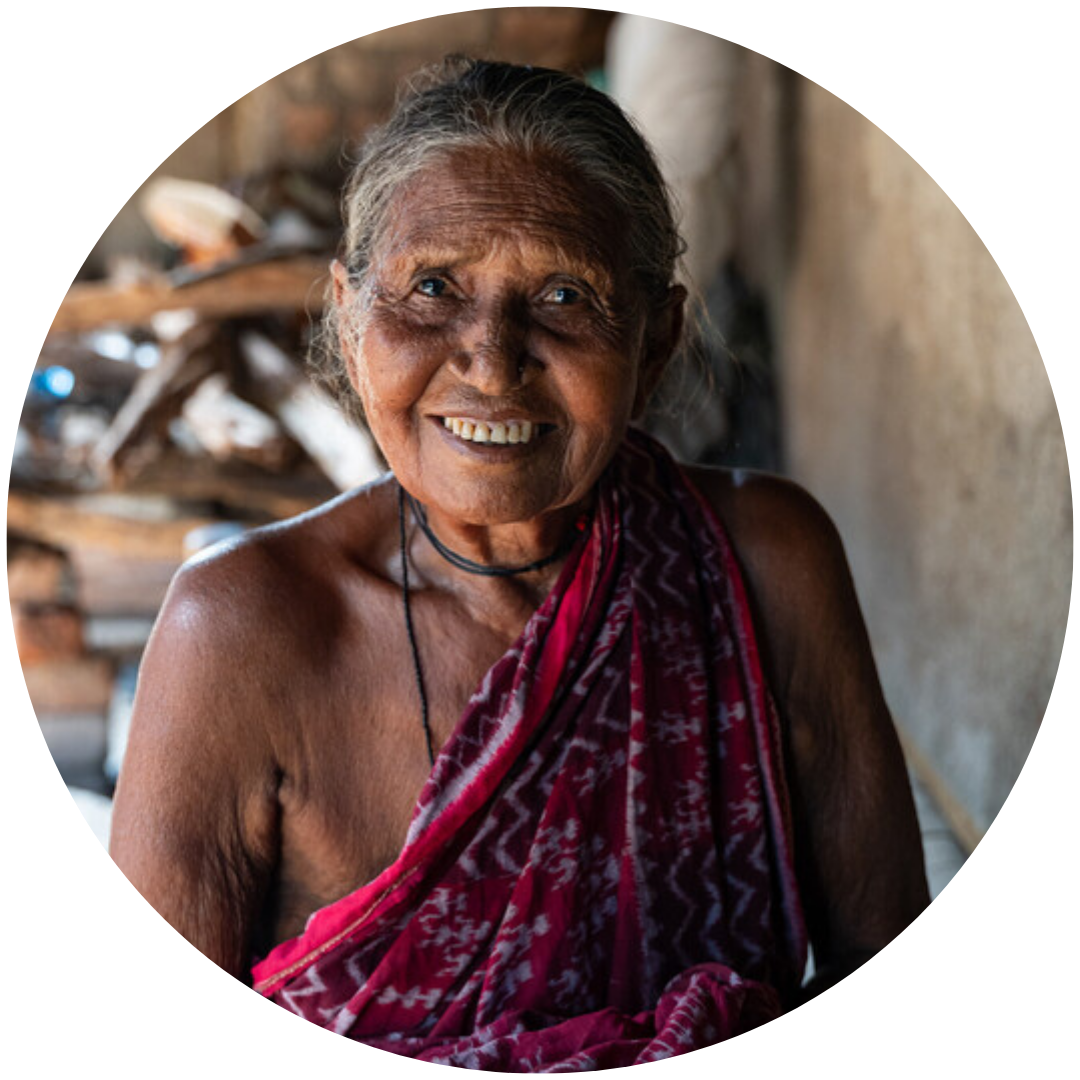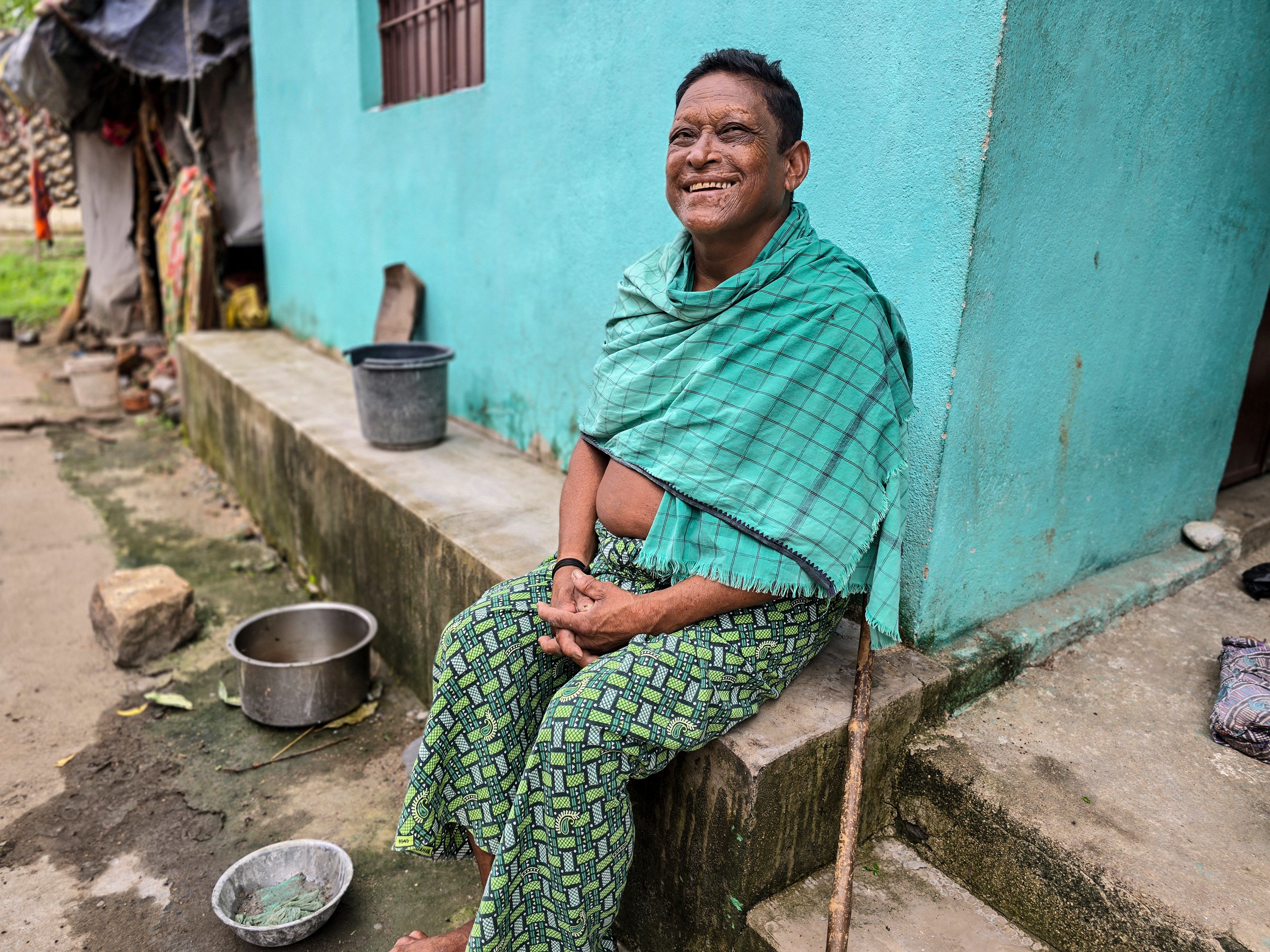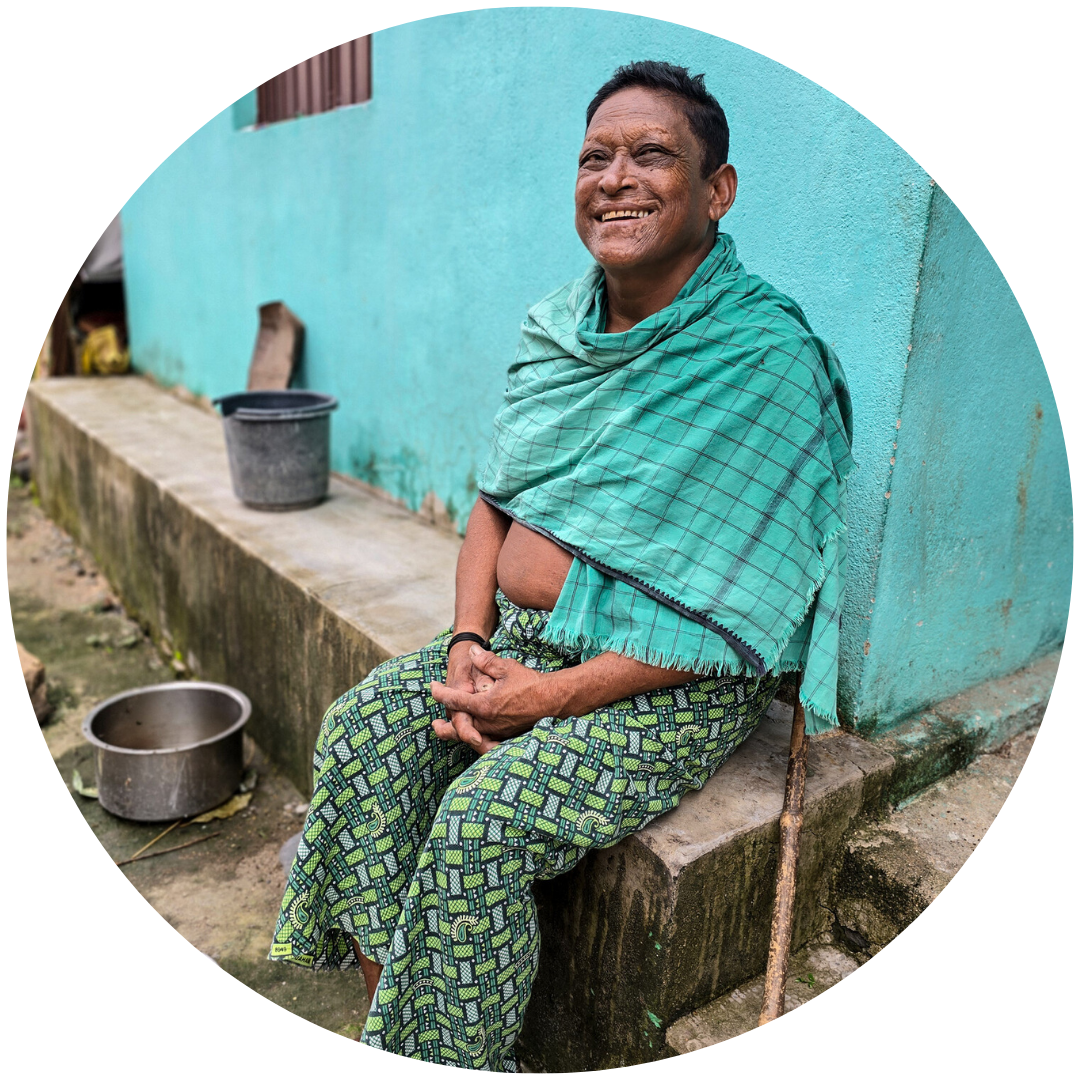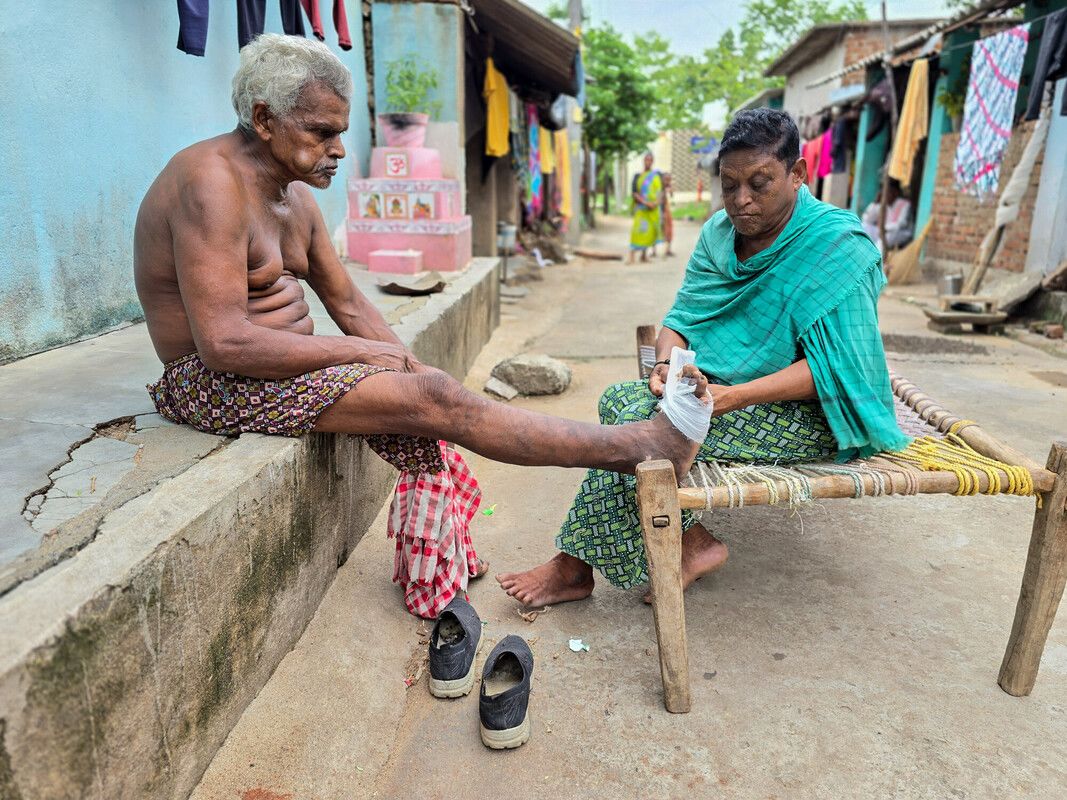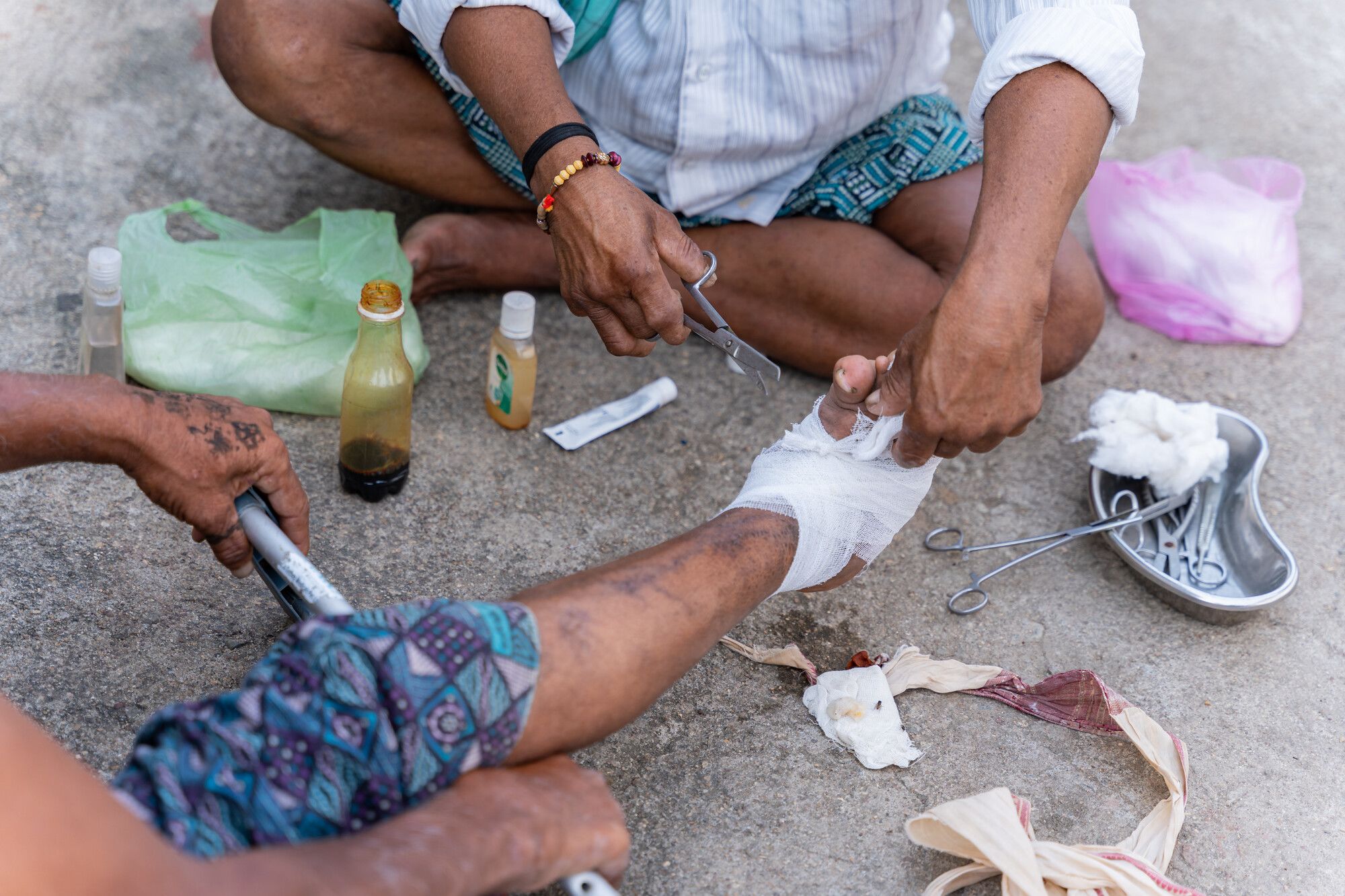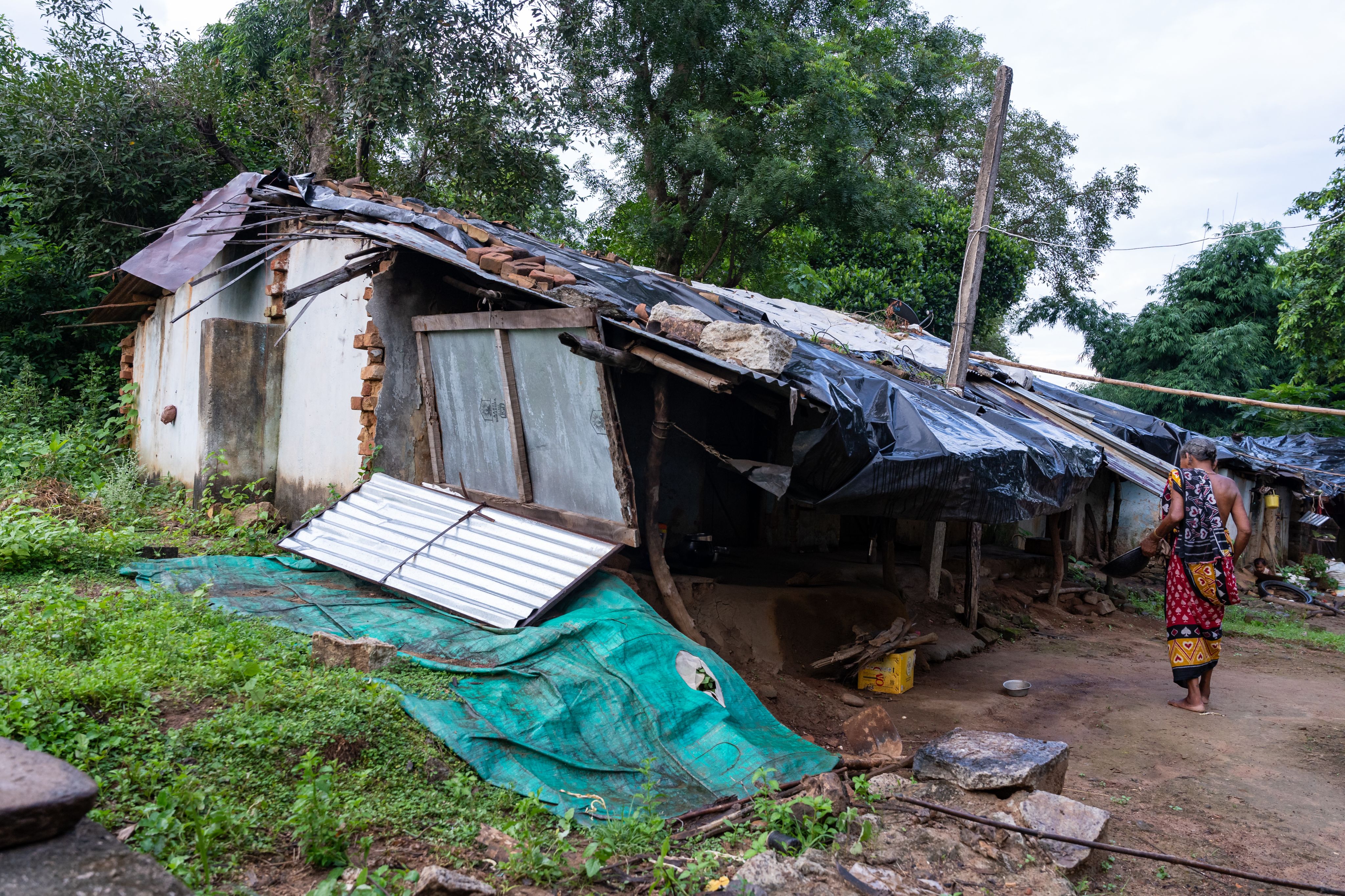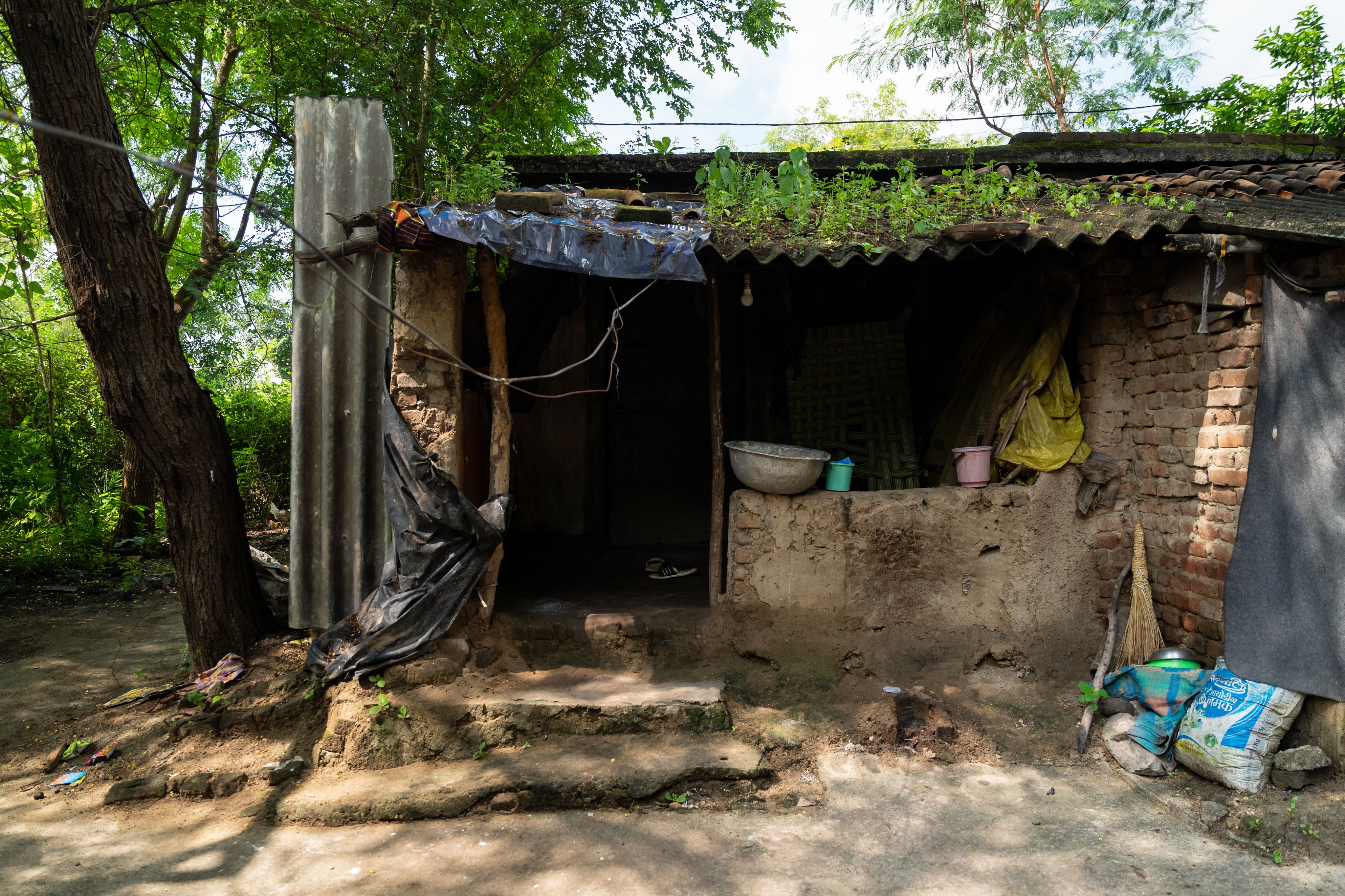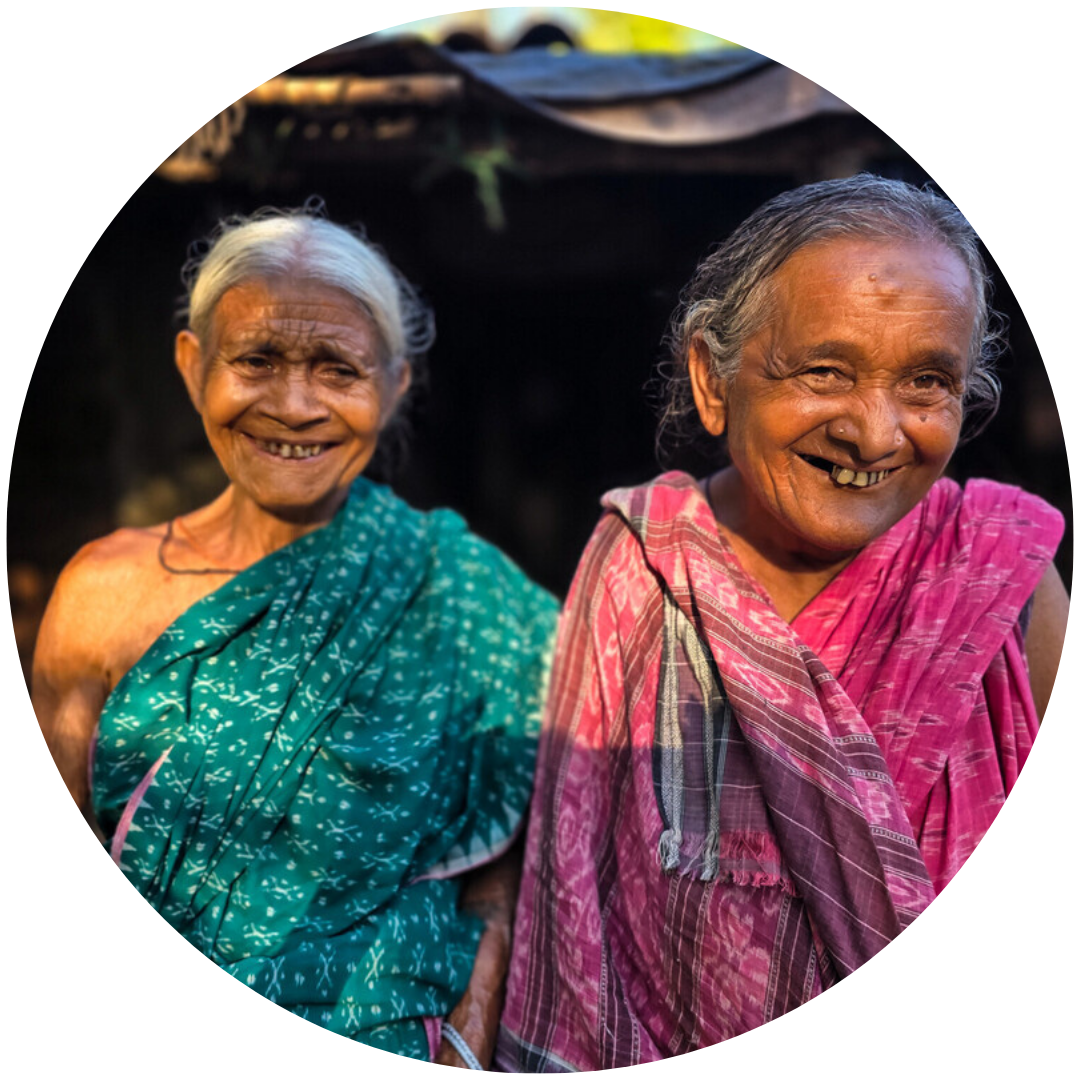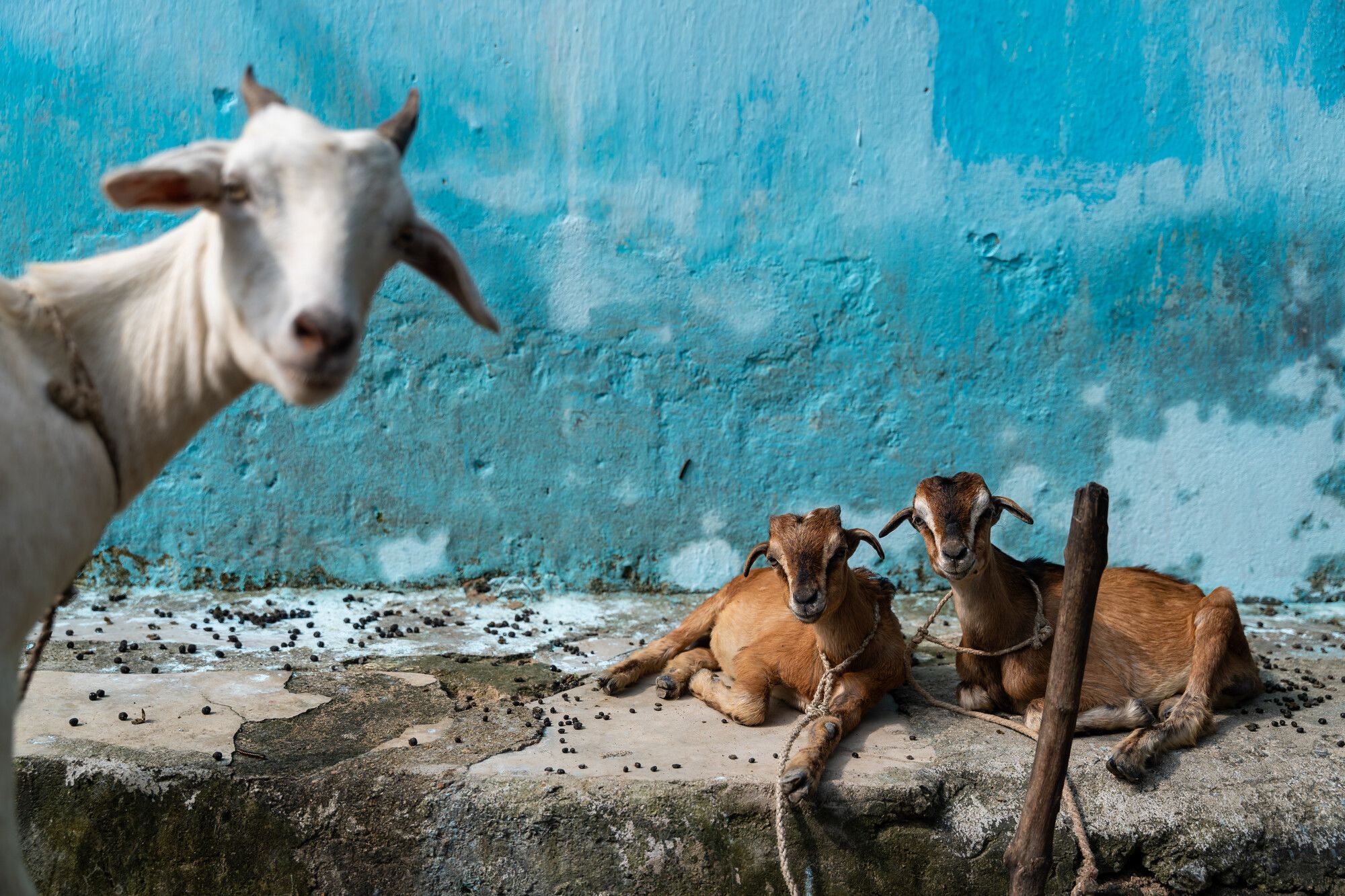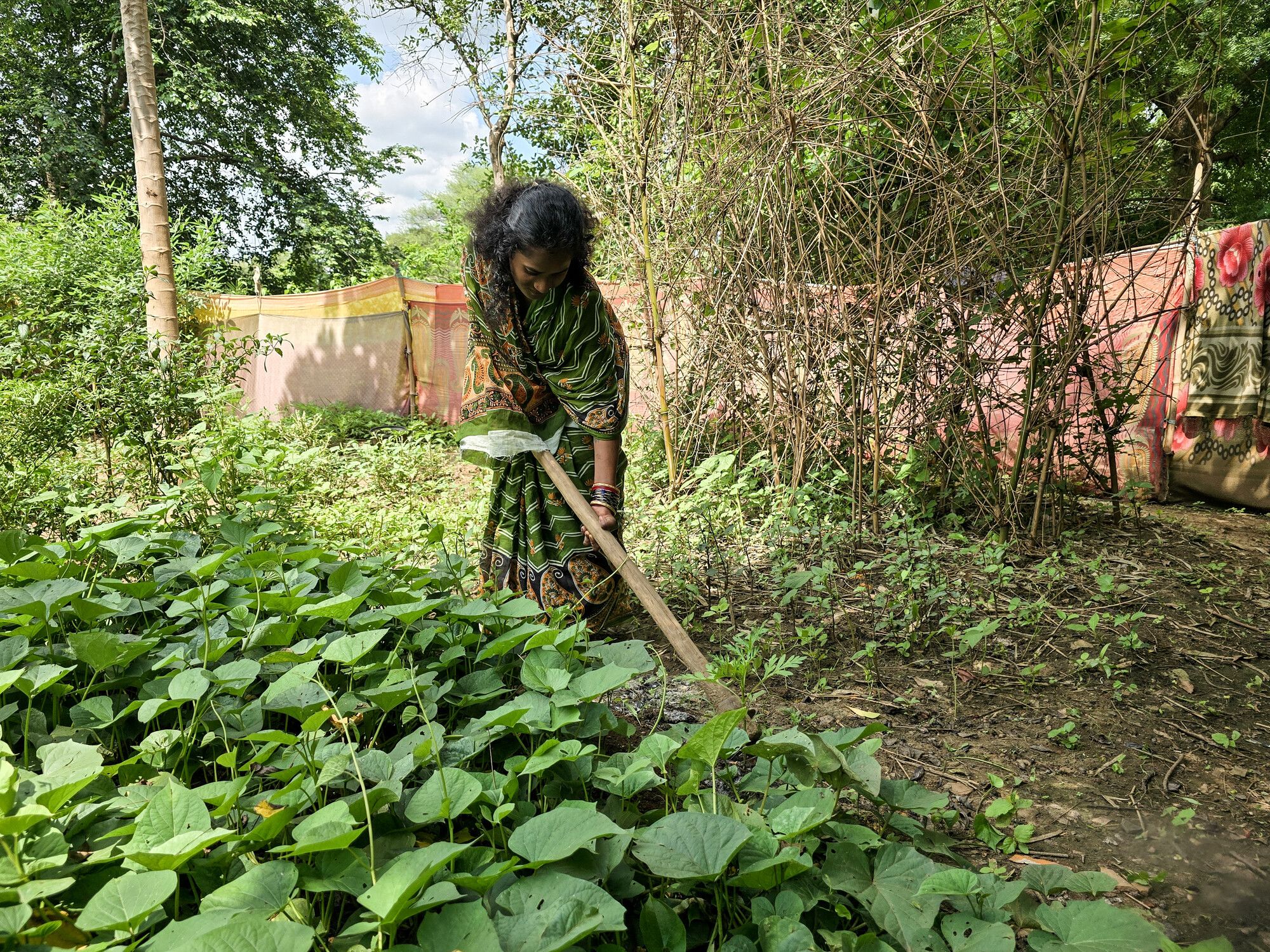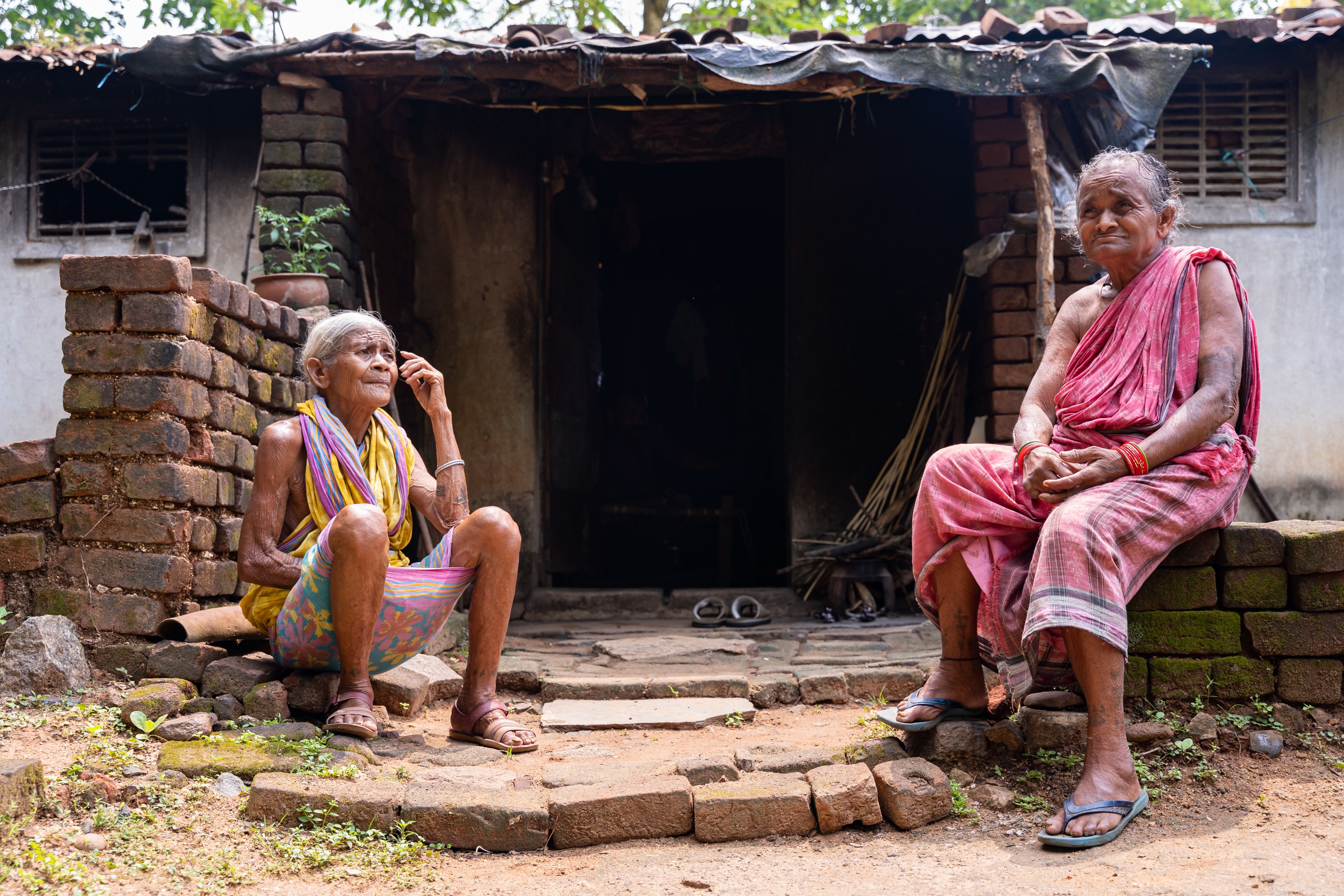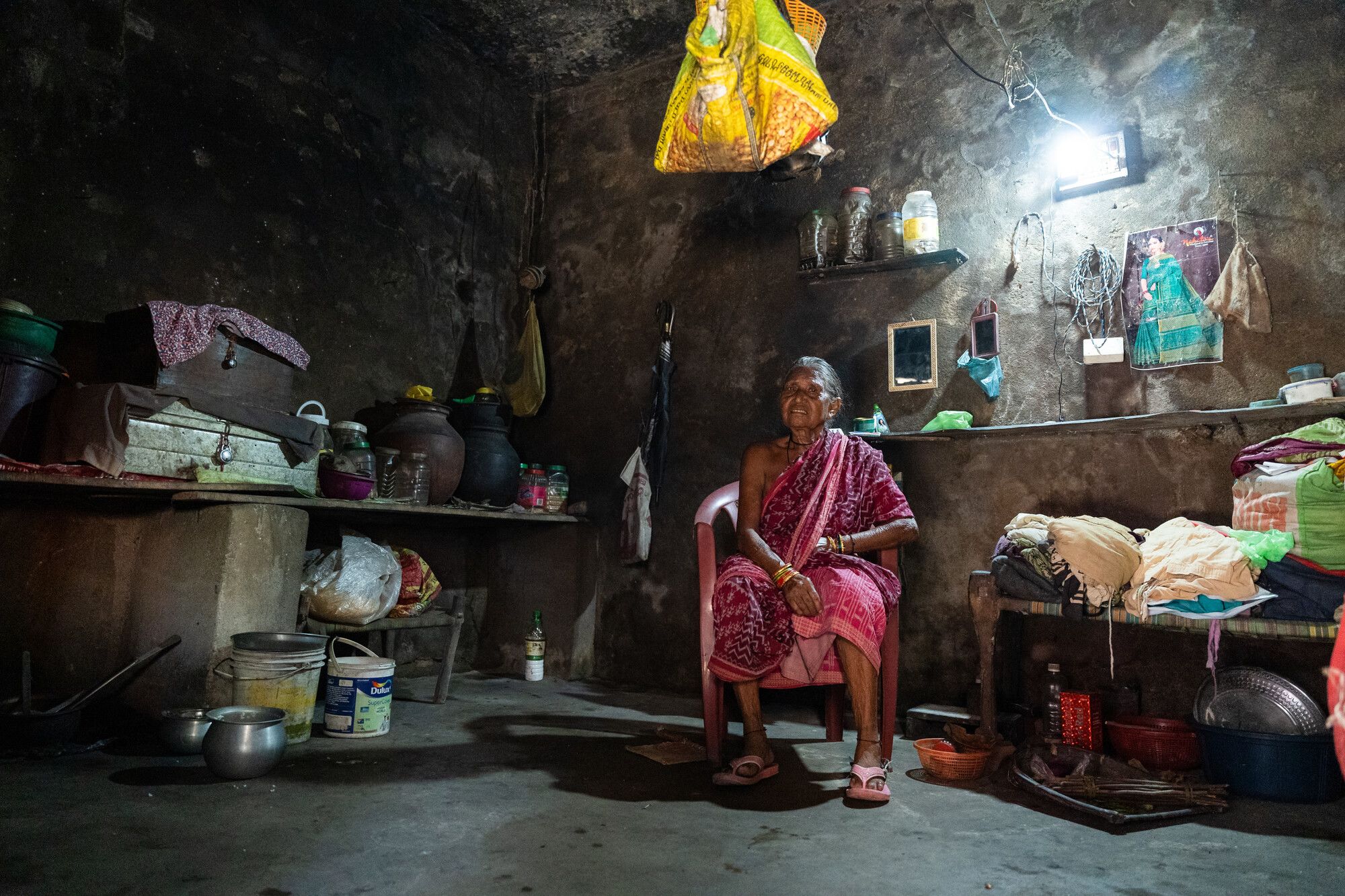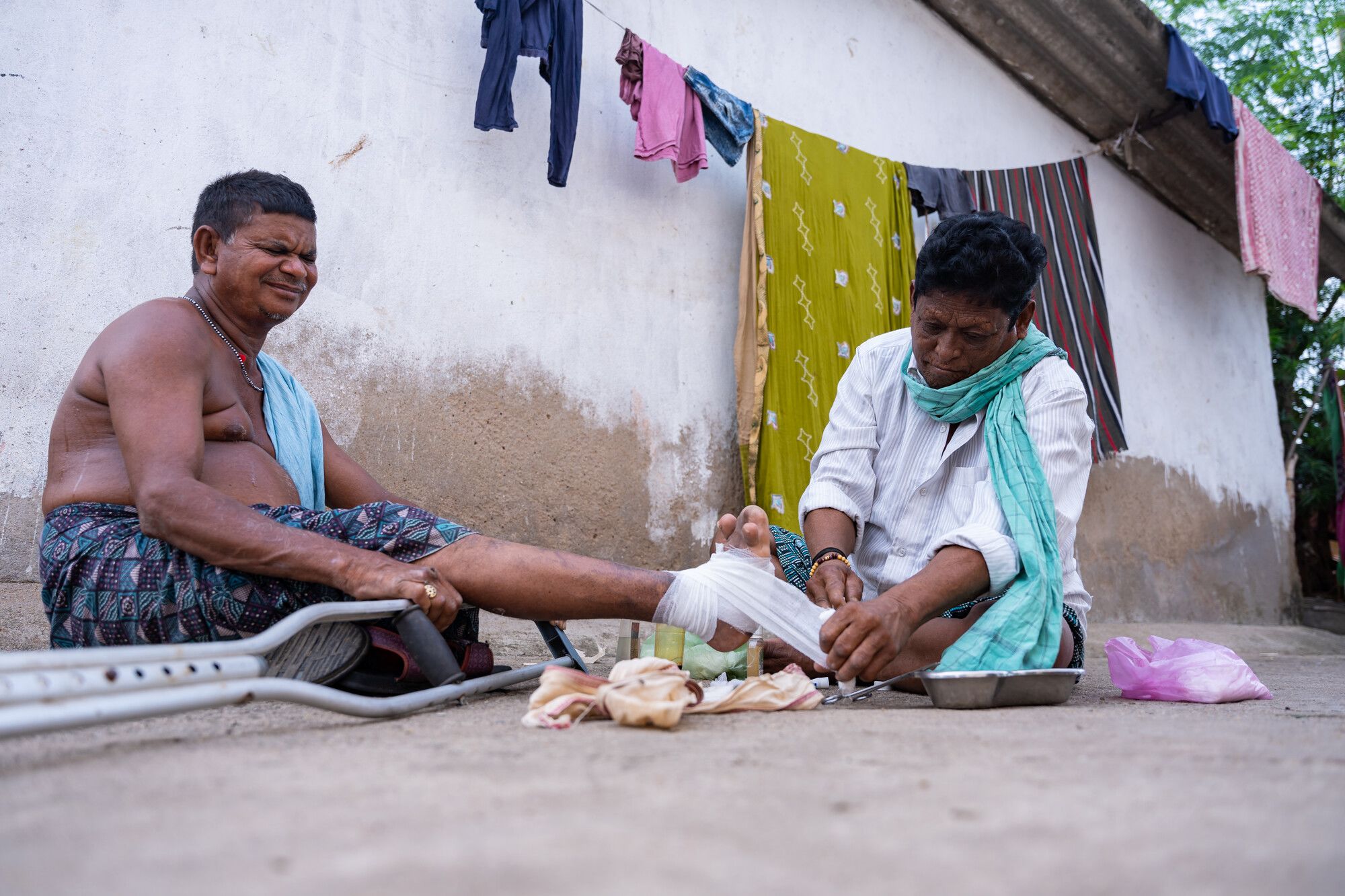It's time to revive health, revive futures and revive hope.
Click to explore Odisha.
Healthcare
Healthcare
|
Homes & Toilets Homes & Toilets |
Food & Clean Water Food & Clean Water |
|---|
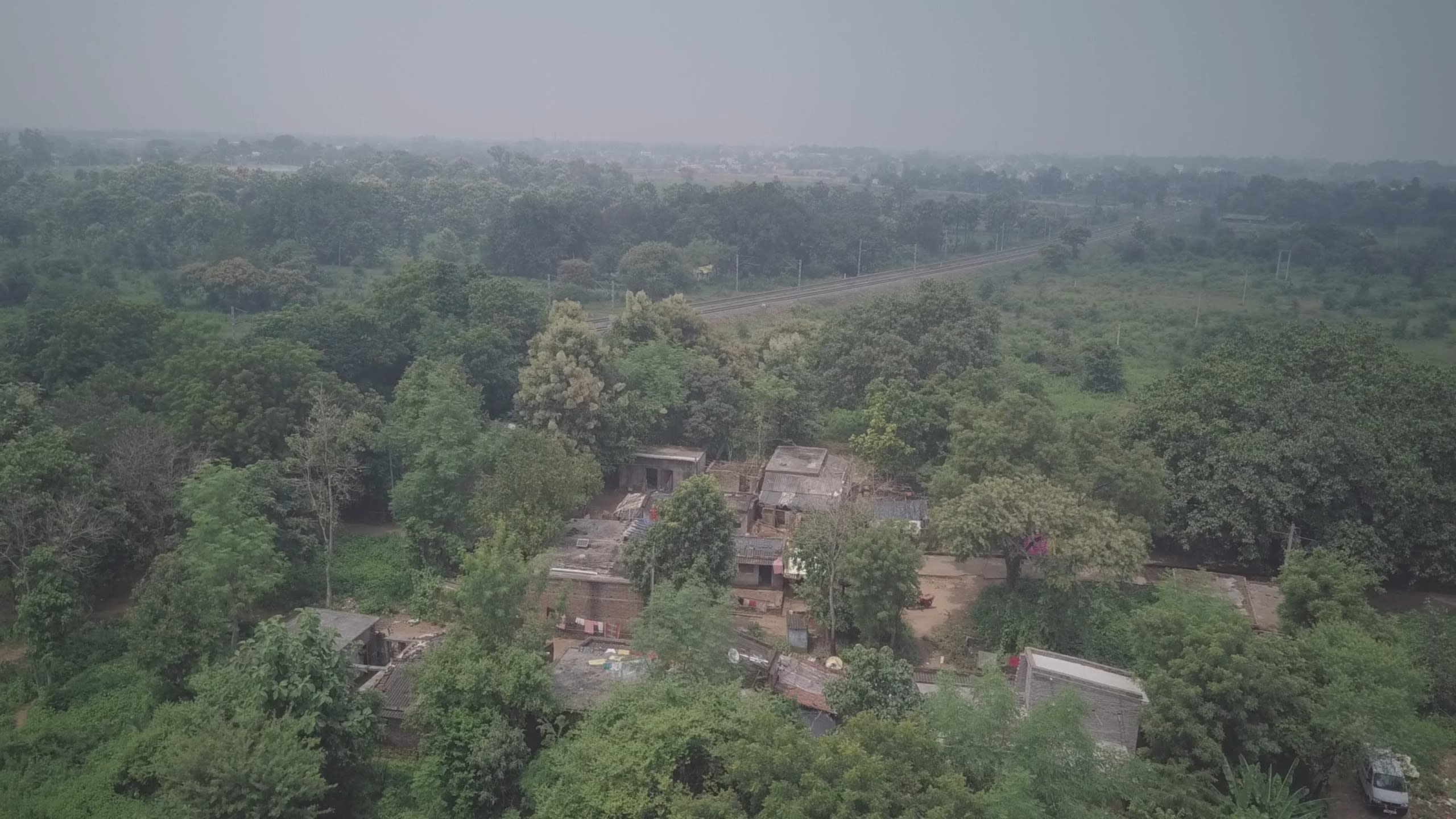
Welcome to Odisha
Pushed to the edge of society, communities affected by leprosy have been forgotten. Poverty, poor sanitation, and lack of healthcare means it’s the perfect breeding ground for leprosy. It’s no surprise that the disease is spreading to the next generation, stealing futures and hope.
Can you imagine…. Being seen as a curse and despised by all around you? Surviving on one bowl of rice a day? Drinking river water everyone has also washed in? Living in a shack on the verge of collapse? Not being able to see a doctor to dress infected ulcers caused by leprosy?
Maybe it sounds overwhelming, but together we can make a difference! Stopping the spread of leprosy. Providing clean water and toilets. Building safe homes. Providing opportunities to grow food and look after livestock. Today, your compassion can start to revive health, futures and hope. Click here to out more...
Read my story
Healthcare
Leprosy treatment is almost non-existent across many of Odisha’s colonies.
You might feel frustrated having to wait for a doctor’s appointment, but what if there was no doctor to see? What if you couldn’t afford to travel to a distant clinic? What if you didn’t even know you had leprosy because you didn’t know what the symptoms are?
Without fast treatment, leprosy destroys feeling in hands and feet. Injuring yourself is easy when you can’t feel a burning pan in your hand, or a stone under foot. And looking after wounds is very difficult in leprosy colonies. Infection soon sets in. With no safe water or bandages, ulcers develop. These often lead to disability.
Communities desperately need medical care. And that’s where community heroes like Dama come in.
Click here to read Dama's Story
Click here to read Dama's Story
Homes & Toilets
Water pouring through a broken asbestos roof for months during monsoon. Living in a corner of a damp room. Dampness affecting lungs and breathing. No secure windows and doors, open to snakes, rats, scorpions and mosquitos.
Then there’s needing the toilet at night. We’ve all experienced stubbing a toe or tripping over something in the dark as we tiptoe across the bedroom. But can you imagine having to cross a field?
It isn’t safe or dignified. It’s a real struggle for women like Sunitra and Bonita. Friends for nearly 40 years, they share a similar story of rejection because of leprosy. They also share the same crumbling home and a fear of needing to go to the toilet at night.
Click to read Sunitra and Bonita's Story
Click to read Sunitra and Bonita's Story
Food & Clean Water
Across leprosy colonies in Odisha, people are living in unimaginable poverty.
Food and water. These are basics we take for granted. But for people living here, even basics are out of reach. With wells that are broken or dry, it’s a long walk to the local river to fetch water. The river is used for washing by the community. The water is so dirty. How would you feel if you had to give your children a drink you knew would make them sick?
Fear of leprosy means even second generation in the colonies can’t get regular work. Begging to survive, it’s a daily struggle to feed a family.
Parents worry about how they will provide for their children. Young people dream of a better future, but good jobs seem just too far out of reach. And for many elderly people like Chahalla, extreme poverty and heartache is sadly all they’ve known.
Click here to read Chahalla's Story
Click here to read Chahalla's Story
Anjali's story
Warning: contains mentions of abuse that some readers may find upsetting.
Anjali’s was only 11 when she was diagnosed with leprosy. Tragically, she wasn’t given the cure and the disease was left to attack her nerves and disable her hands.
Anjali’s leprosy meant she faced terrifying hatred from her grandfather. After two years of threats and abuse, he abandoned her in a leprosy colony far from home. Can you imagine her fear and confusion? She has never seen her family since.
Now in her 30’s, Anjali is a mum to two sons of her own. She’s rebuilt her life as best she could. But it hasn’t been easy and she relies on begging to provide for her family.
“I want so much more for my sons than the life I have had. We have nothing,” she says. “No land and no money. My house is collapsing, there’s water coming through the roof. It’s really hard living in the wet, damp room. There’s no toilet, and we walk to the river to get water. I can’t afford doctors. I’m scared my children will get leprosy too.”
Will you provide a better future for the next generation?
Sunitra & Bonita's story
Sunitra is disabled by leprosy. She lives with her friend Bonita in a broken hut without a toilet. And at night when she needs to go, Sunitra has to walk into the nearby forest. Tripping on uneven ground is the least of her worries. Wading through dirty water during monsoon, and with deadly snakes in the grass, the prospect of needing to relieve herself fills Sunitra with dread every night. She can’t clean herself, there’s no dignity, and she often gets sick.
“It’s so dark here,” Sunitra says. “I have a little torch, but I hate going into the jungle to go on my own. I struggle to walk and I worry I won’t about being bitten by a snake. I also find it hard to clean myself.”
Sunitra and Bonita deserve so much better in their old age. You can give them a safe home and a toilet, restoring their dignity and taking away their fear.
Chahalla's story
When Chahalla was diagnosed with leprosy, there was no cure. Without treatment, the disease made her lose the feeling in her hands and feet. Her fingers curled into her palms until she could no longer straighten them. Cuts on her soles ulcerated. Her husband threw her out, forcing her to leave her young son. “I was so sad. I felt like it would be better if I died. I wanted to go to sleep and never wake up.”
Decades later, Chahalla sits outside her dilapidated home in a leprosy colony.
At five every morning she walks over four kilometres to beg. The gnawing of her empty stomach reminds her that she no other option if she wants to eat.
Chahalla cries sometimes before she goes out. She feels ashamed. People throw scraps of food in her direction, and sometimes coins. On a good day she can earn £1.50. She uses this to buy rice. She can only afford vegetables twice a week, and meat is too expensive.
Can you imagine how Chahalla feels, waiting and hoping for the kindness of a stranger?
No-one deserves to live like this, weak and malnourished.
Today, you can protect the health of young and old by providing a clean source of water.You can provide livestock and the seeds to start gardens, to break the chains of hunger. You can kickstart community change that will transform lives for years to come.
Dama's story
When he was just 15, Dama’s parents threw him out after he was diagnosed with leprosy. After walking for days alone and scared, he met others affected by the disease begging by the roadside. An elderly couple took him to their colony. They scraped together enough money to send him to hospital.
While he was on the ward, a doctor made the long months bearable by keeping Dama busy. Dama was taught how to care for ulcers and learned that, with the right tools, he could show others the kindness he had received.
Now, Dama buys dressings whenever he can. He loves helping people affected by leprosy. But his only source of income is begging. “It upsets me because I know how to prevent ulcers, I just need the tools,” he says. “Cuts desperately need to be cleaned and dressed. If I had bandages, I could go around lots of colonies and help.”
Together with Dama, you can bring vital wound care to leprosy colonies in Odisha. You can stop infection and disability, before it devastates even more lives.

